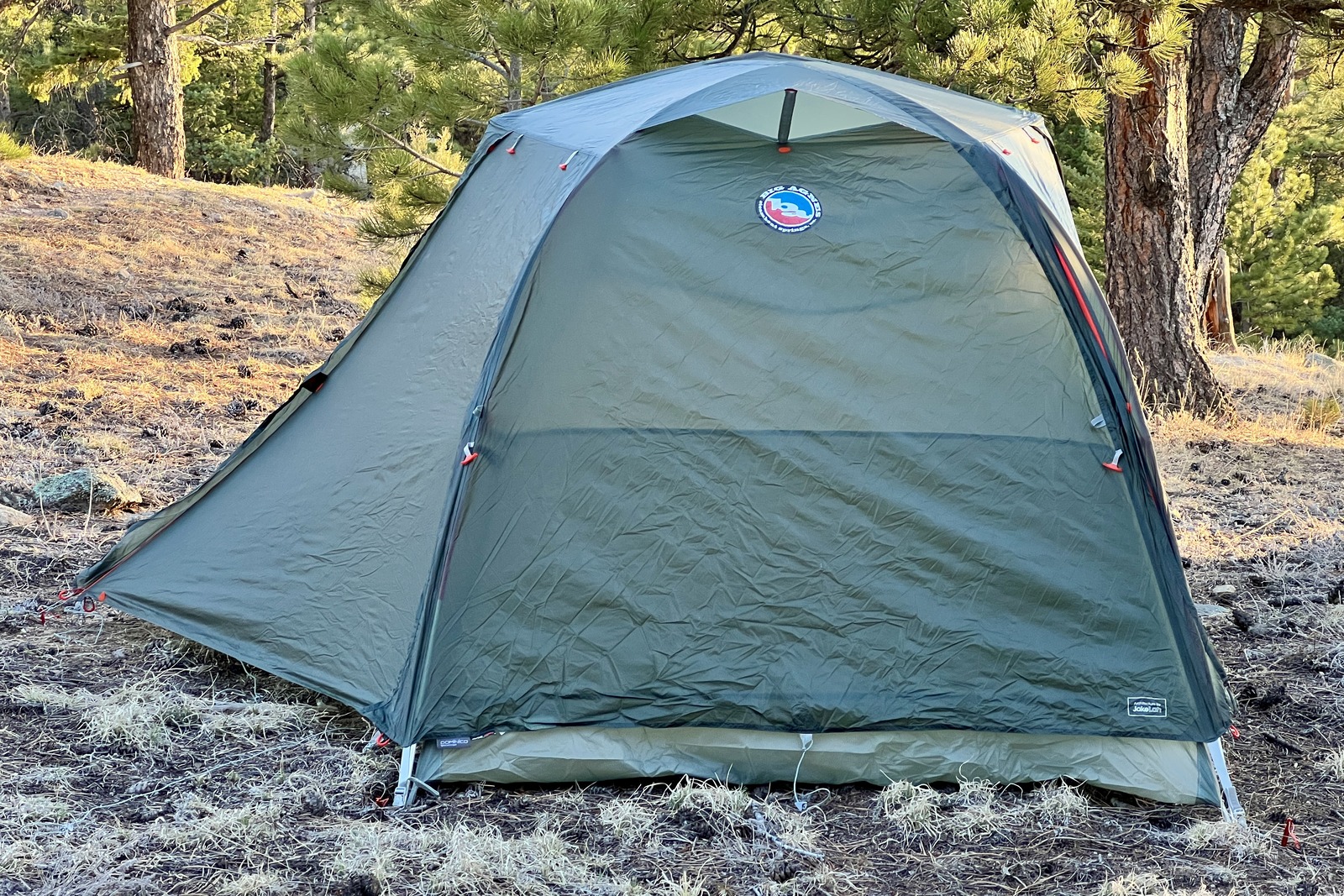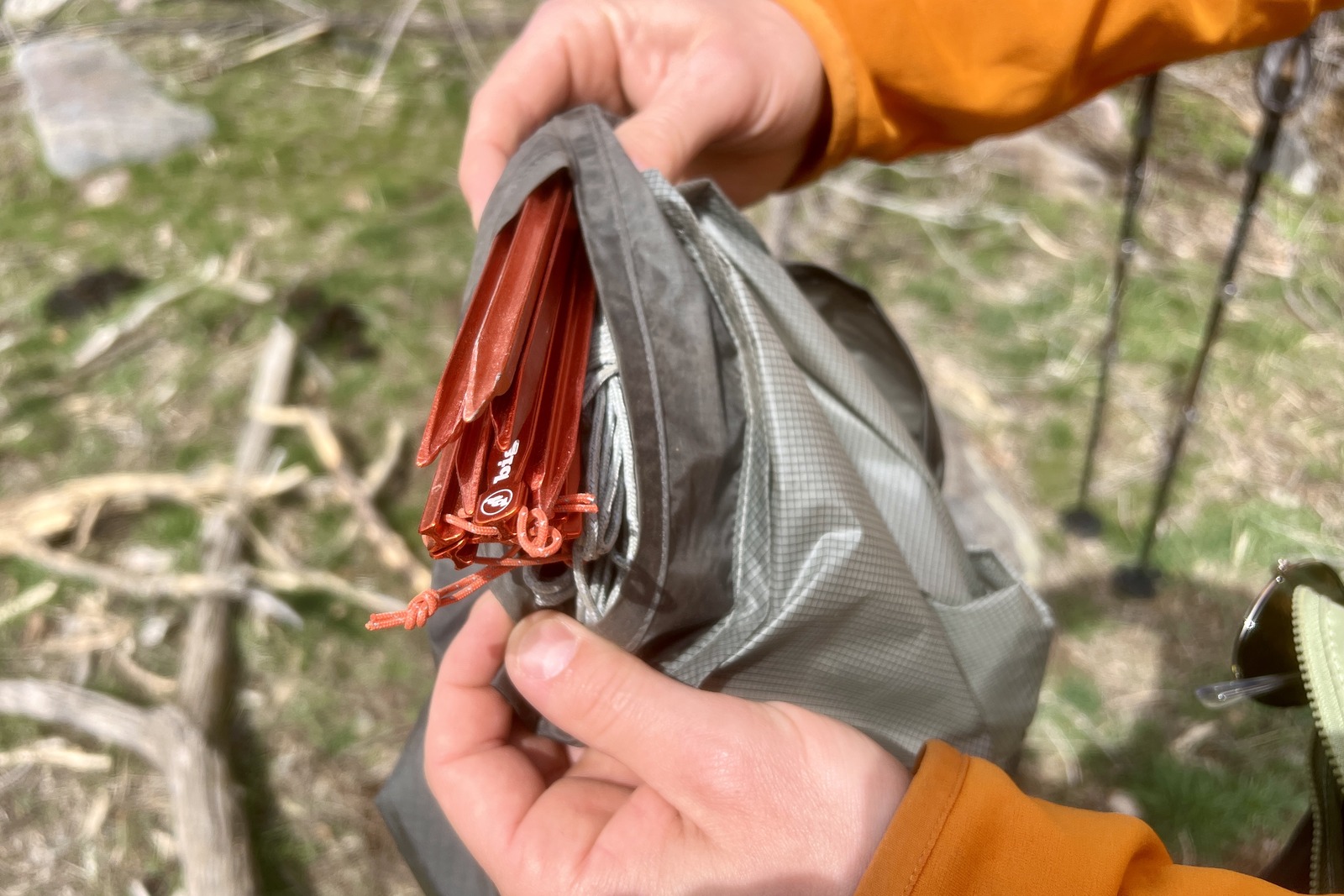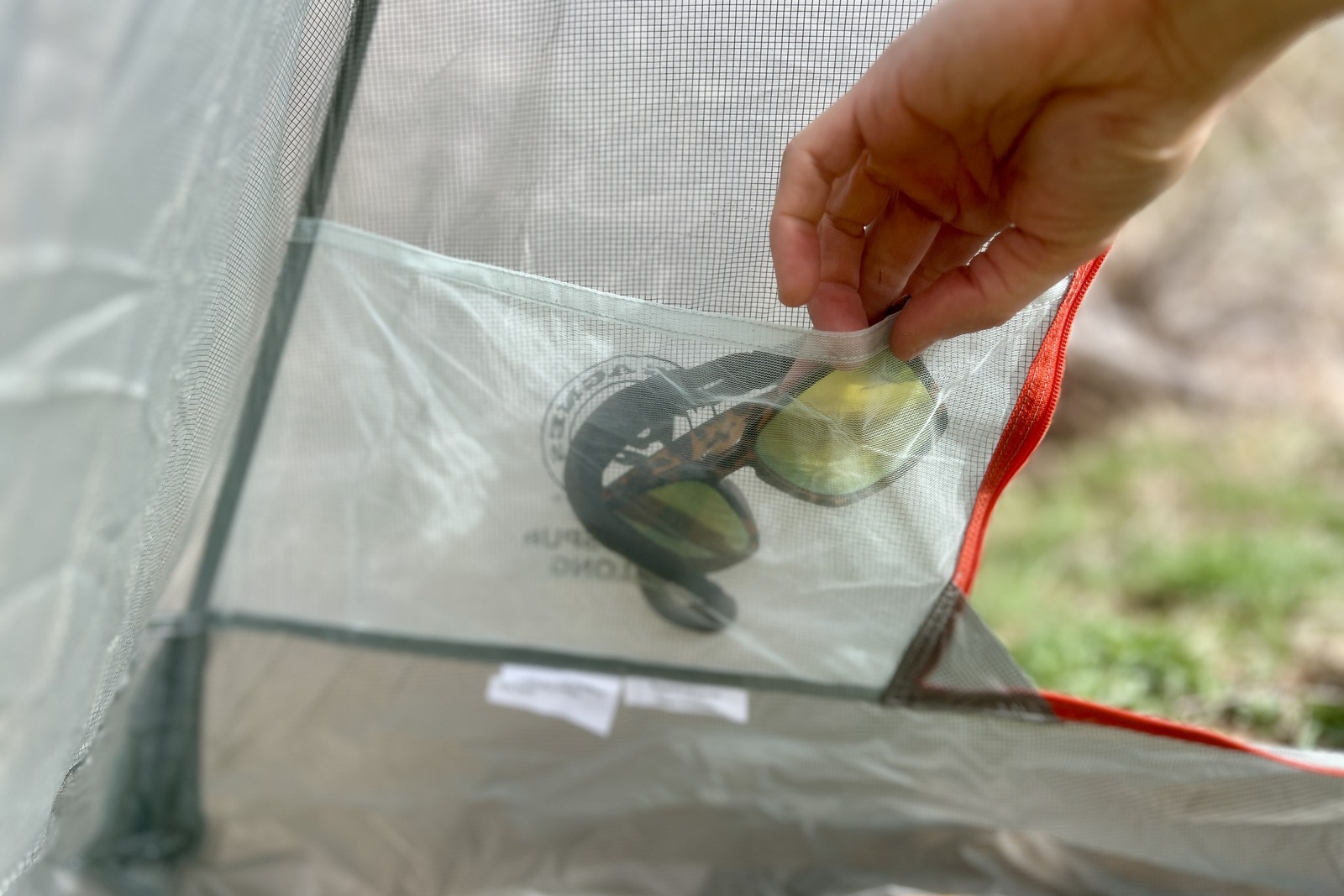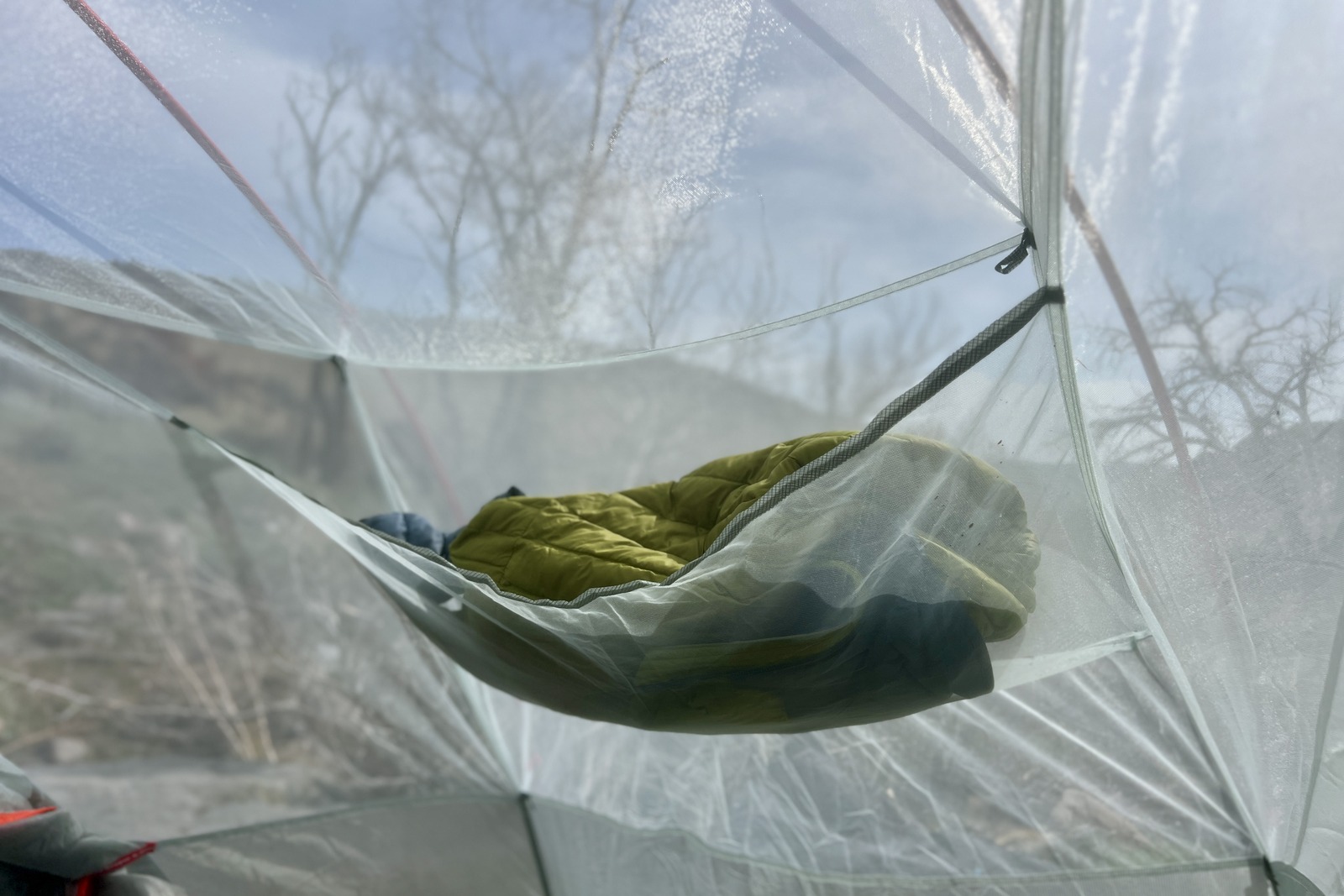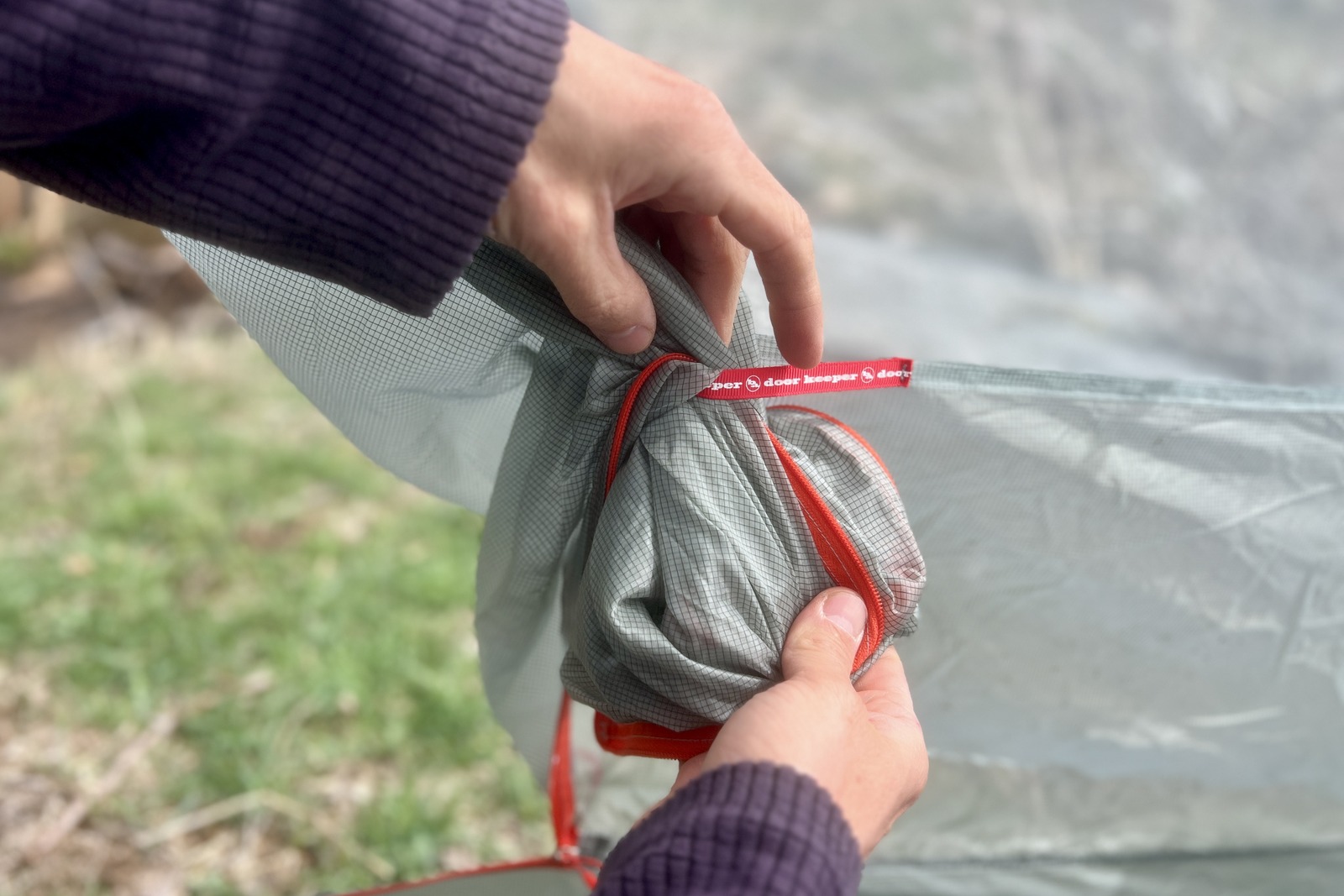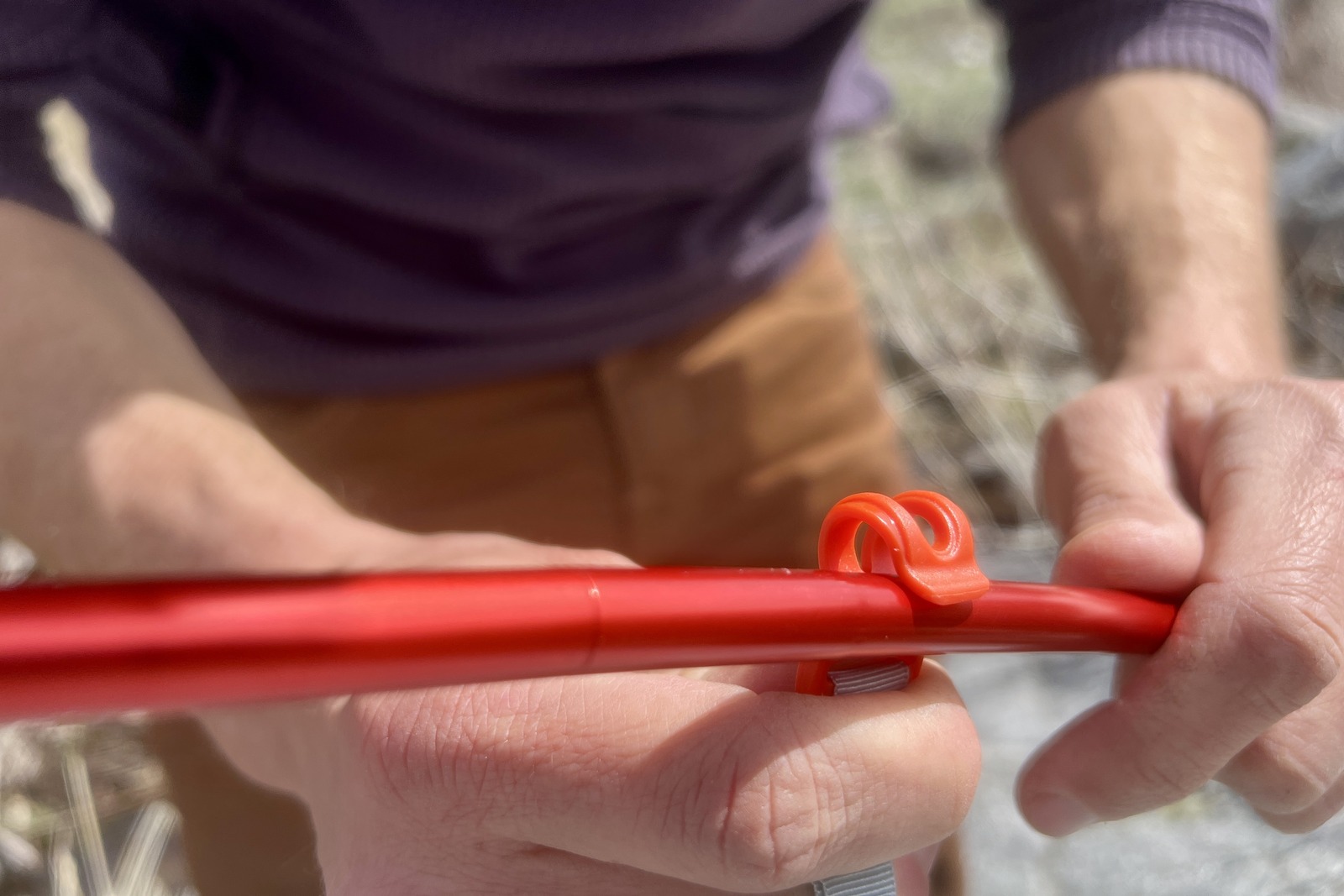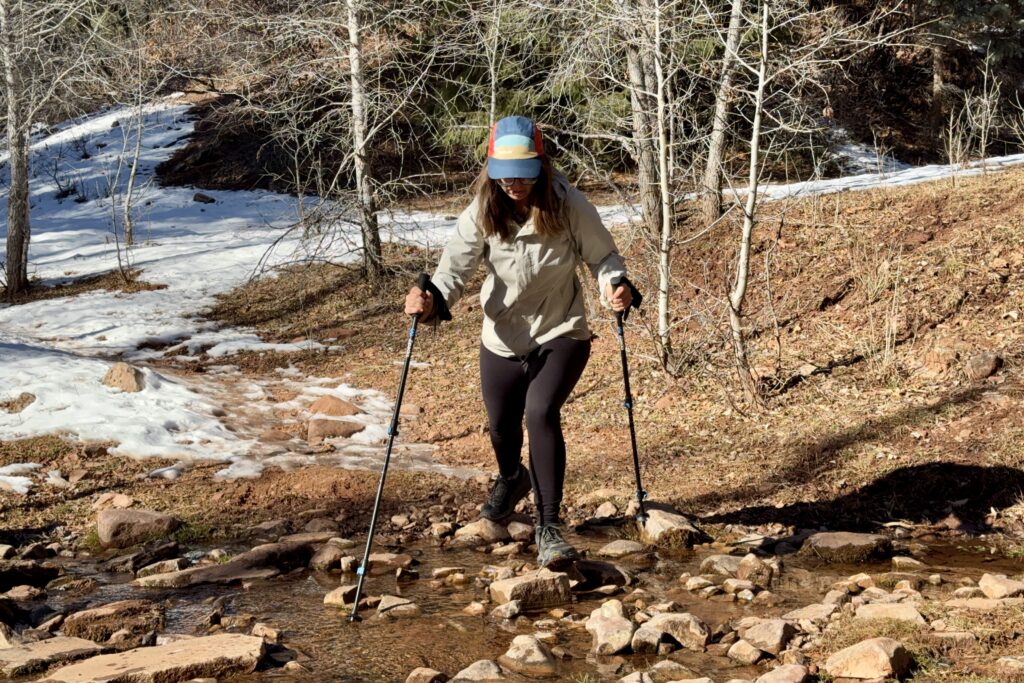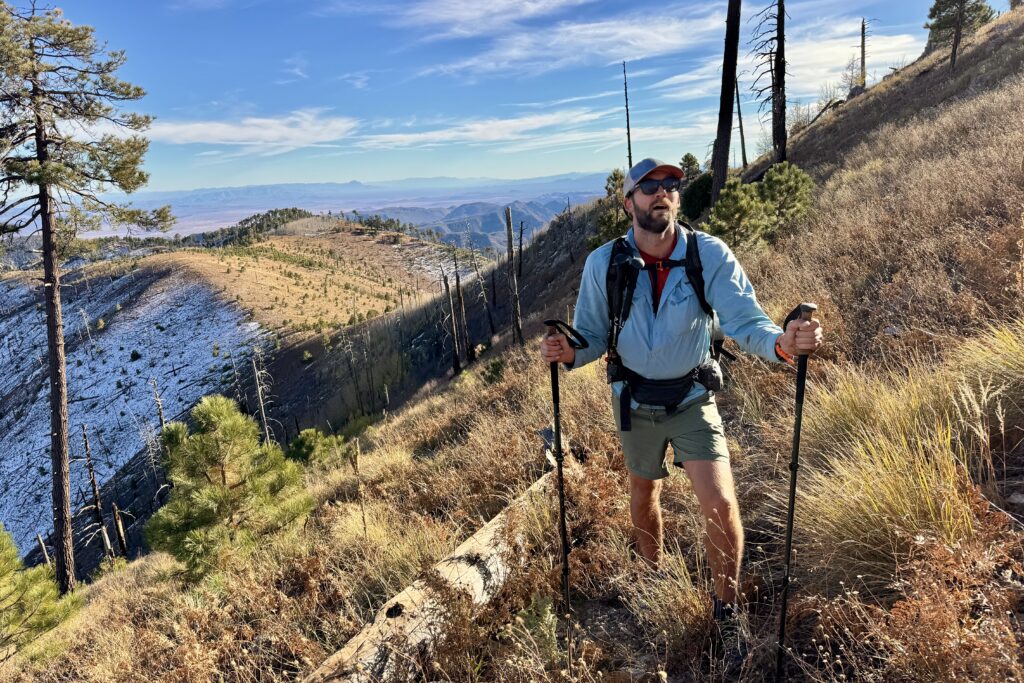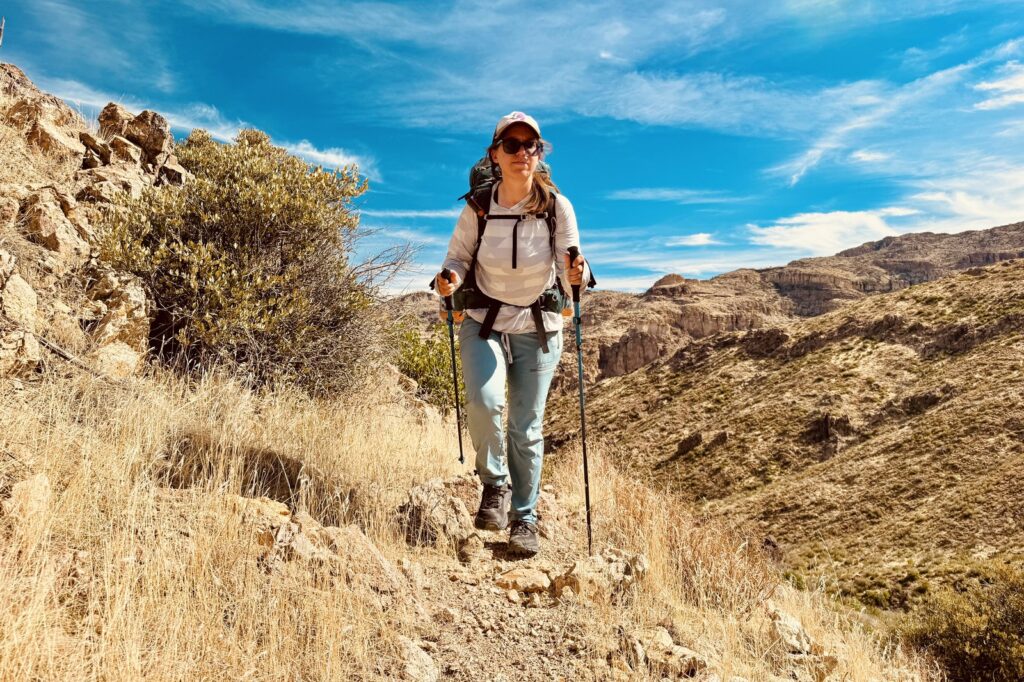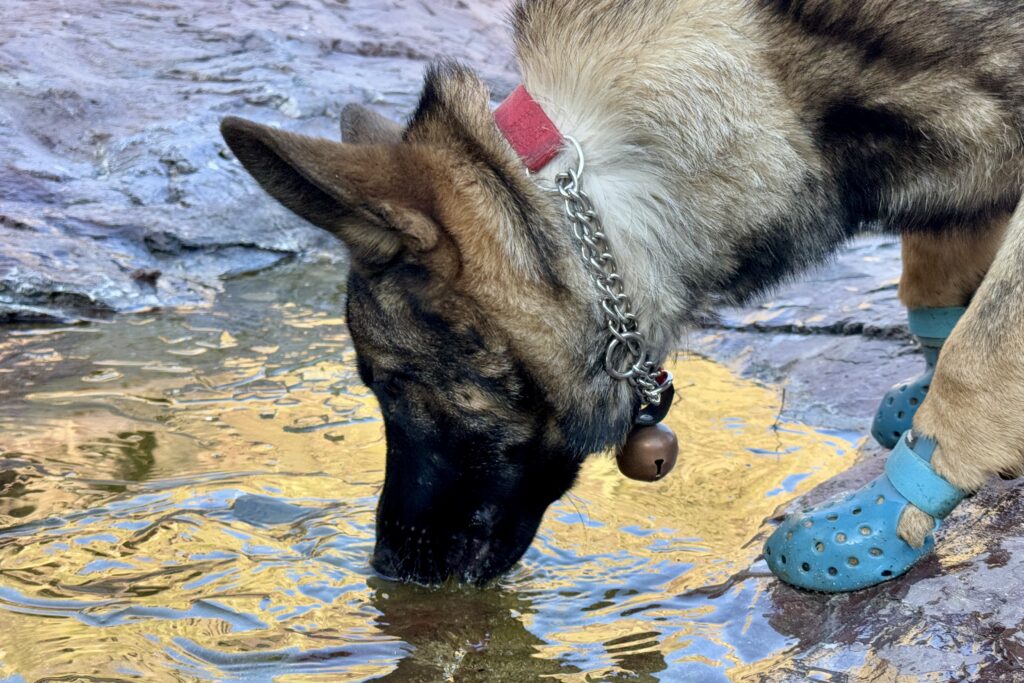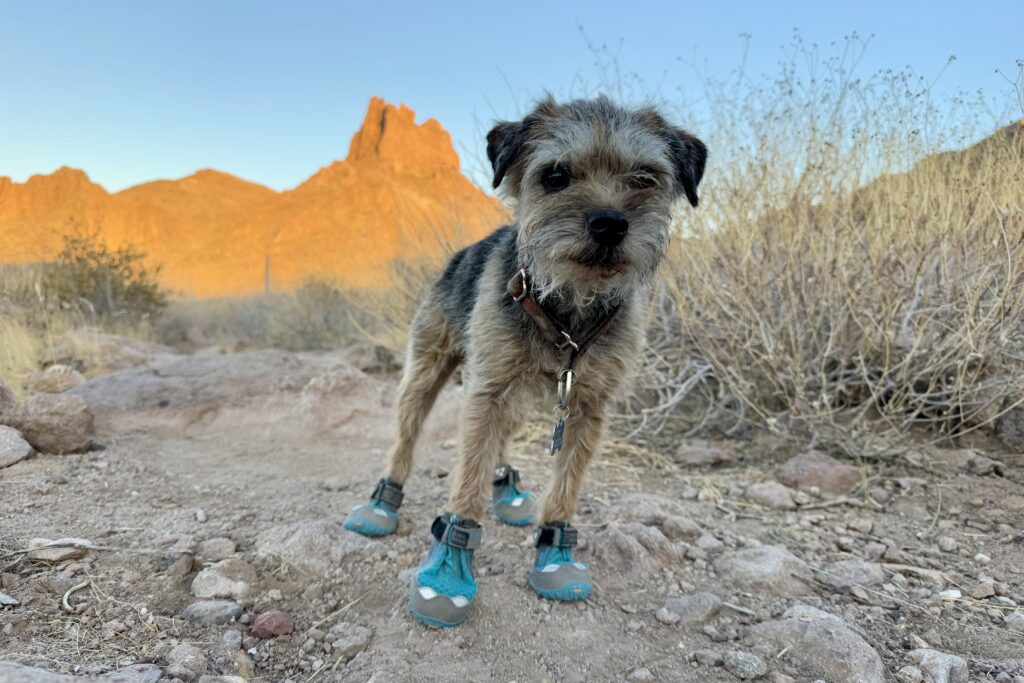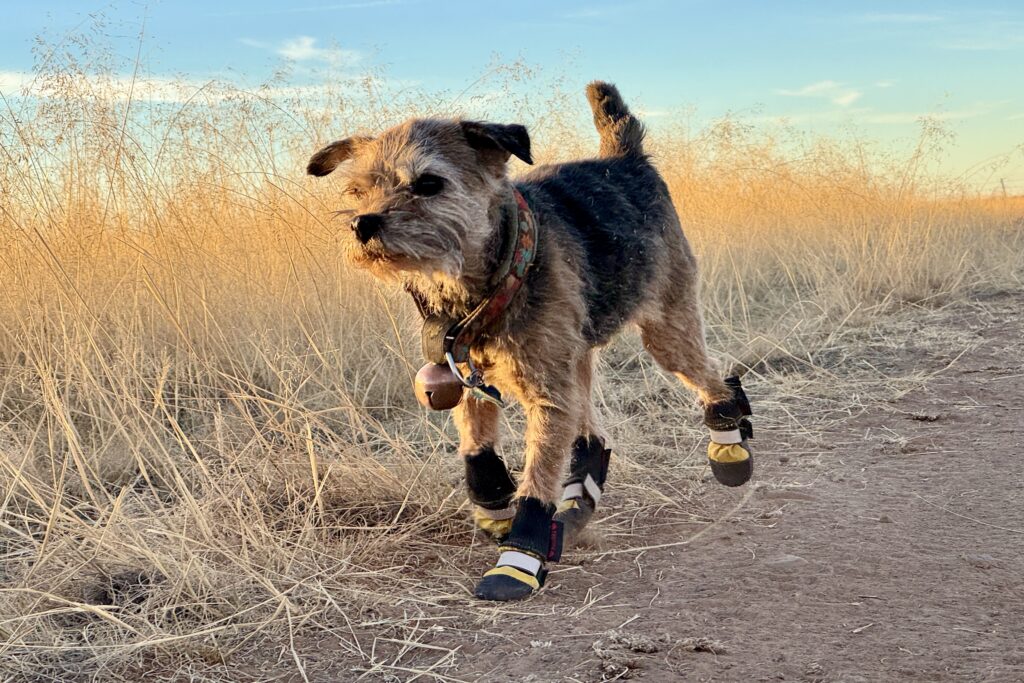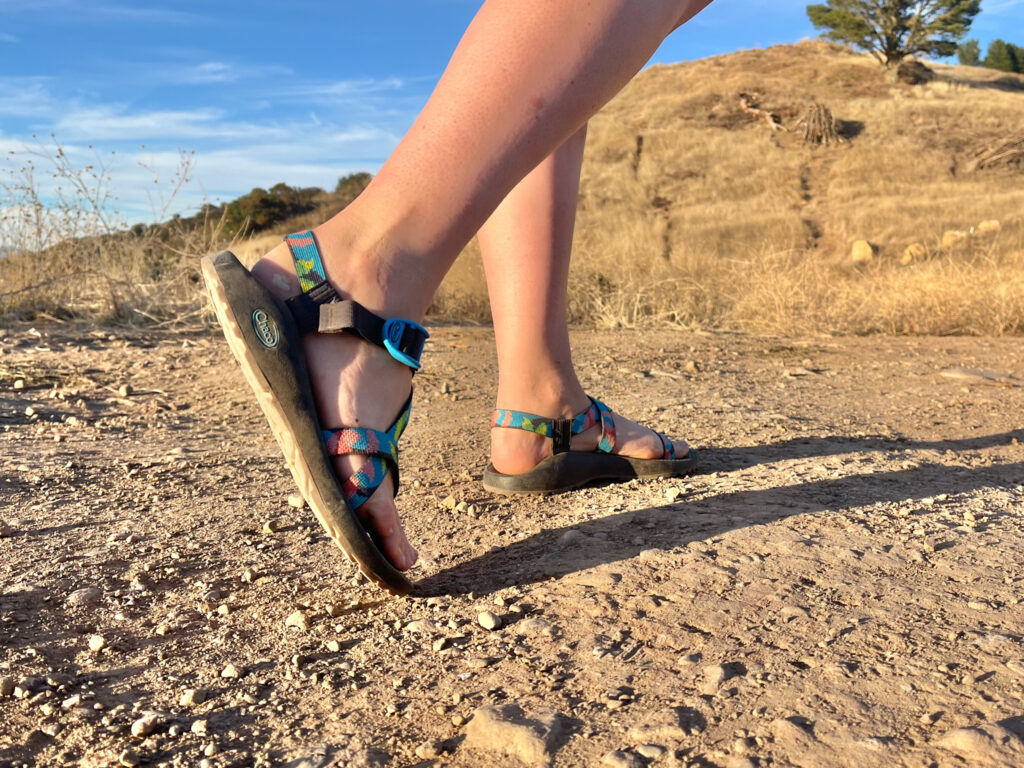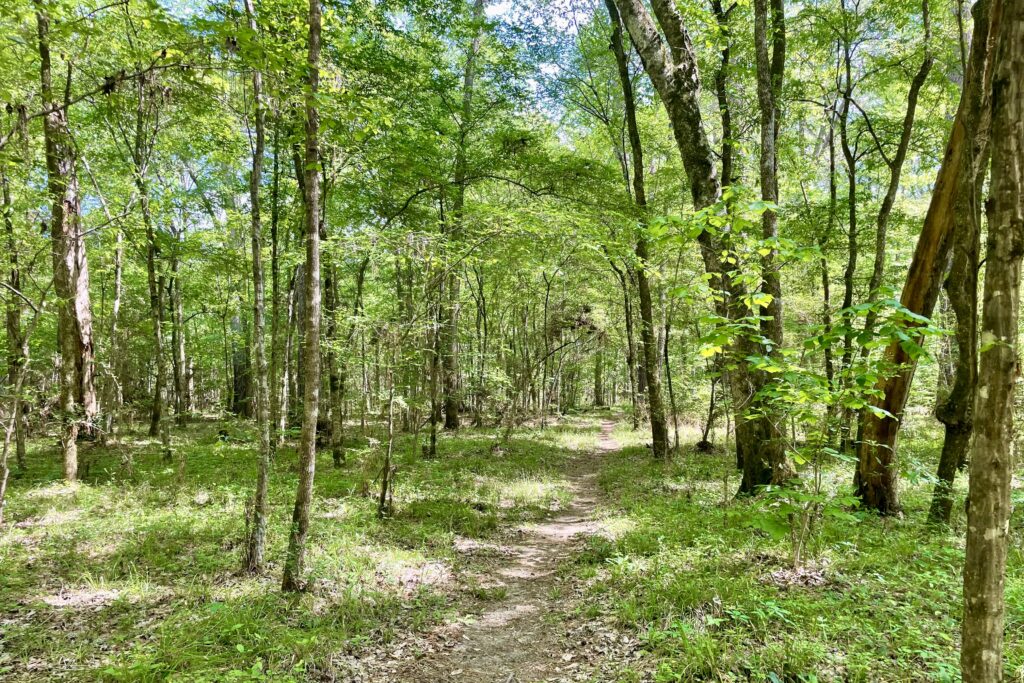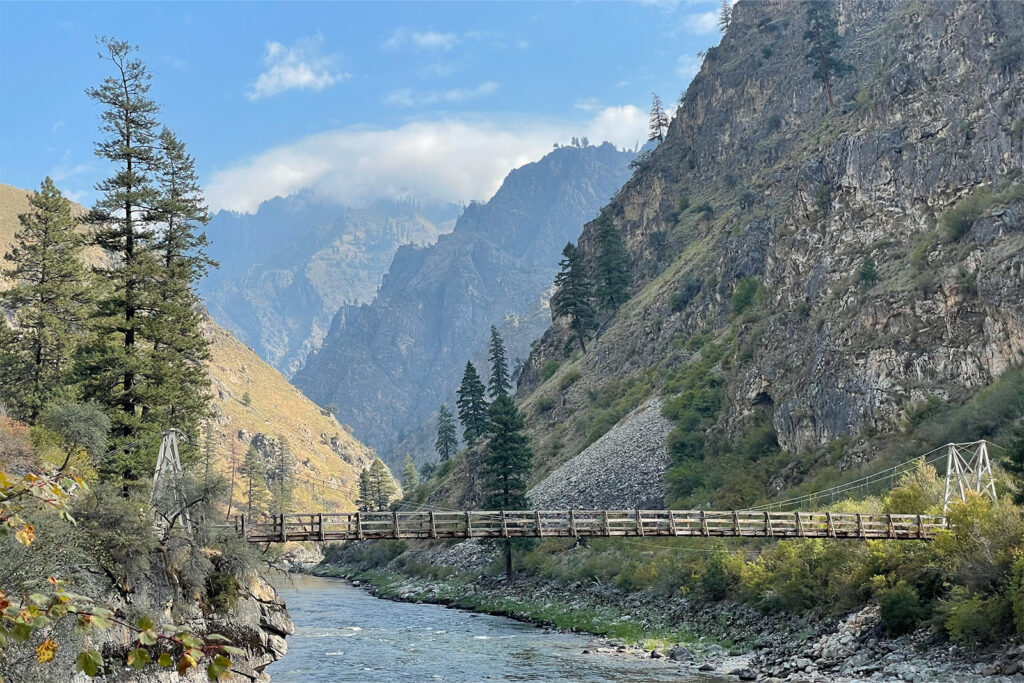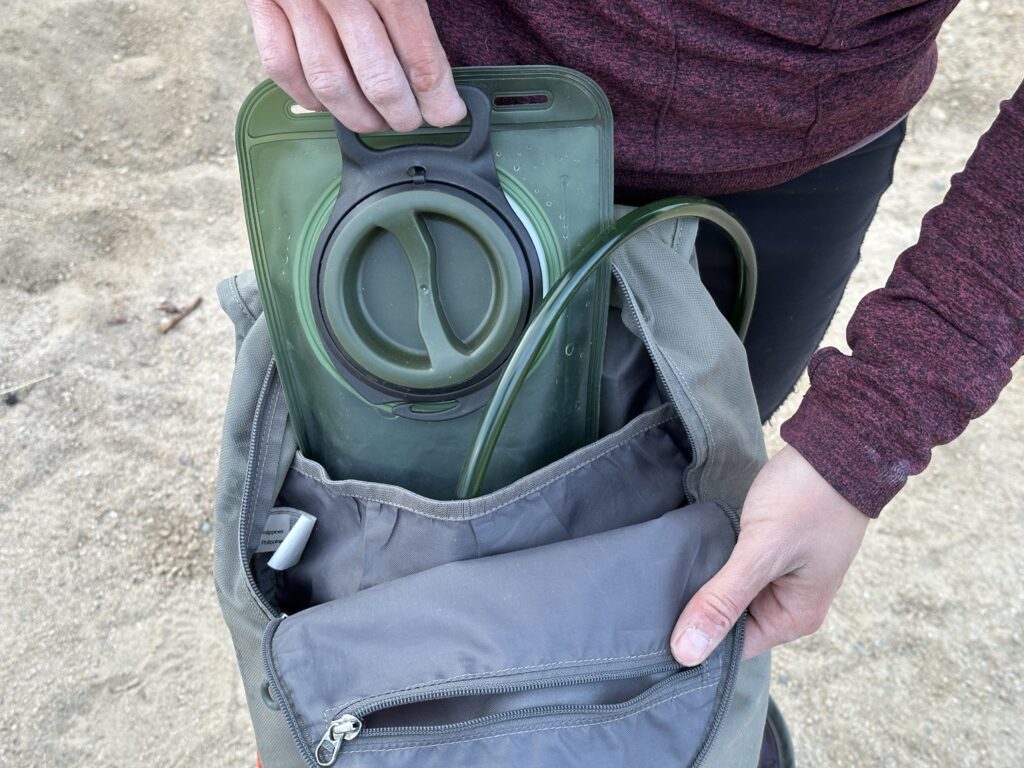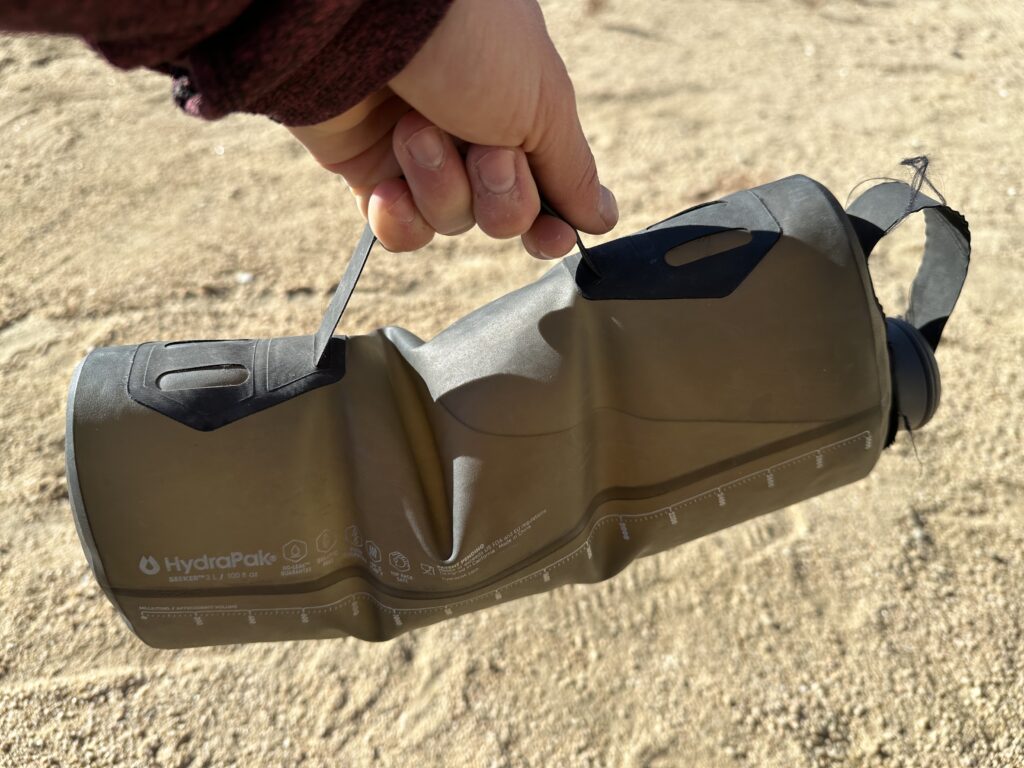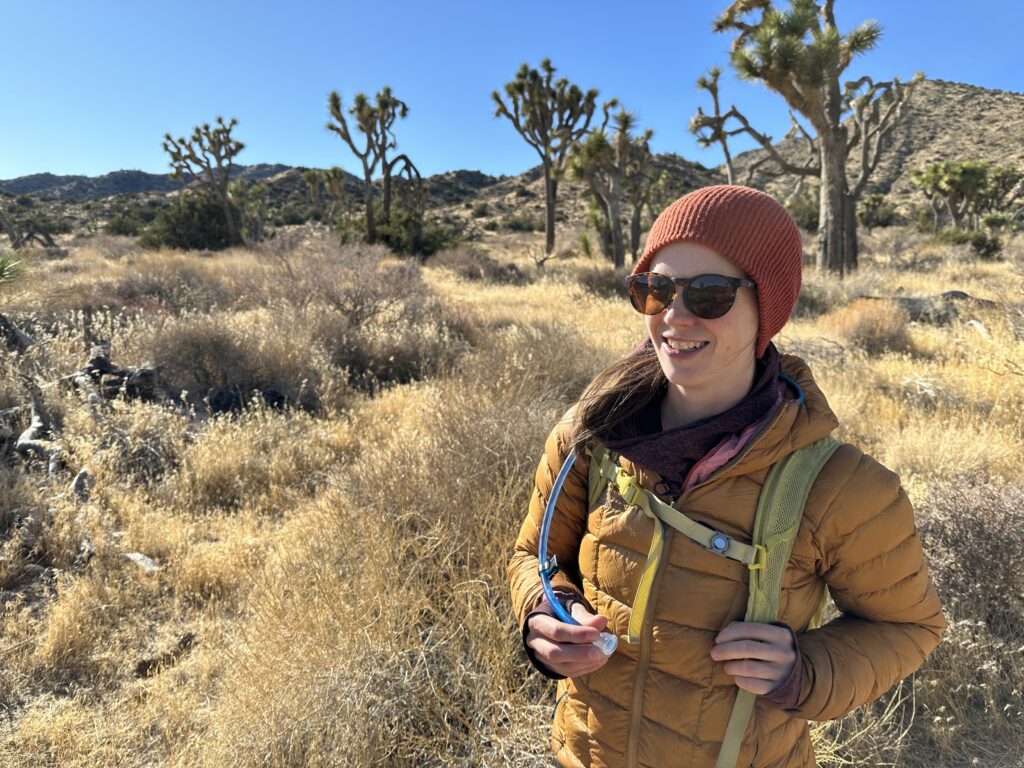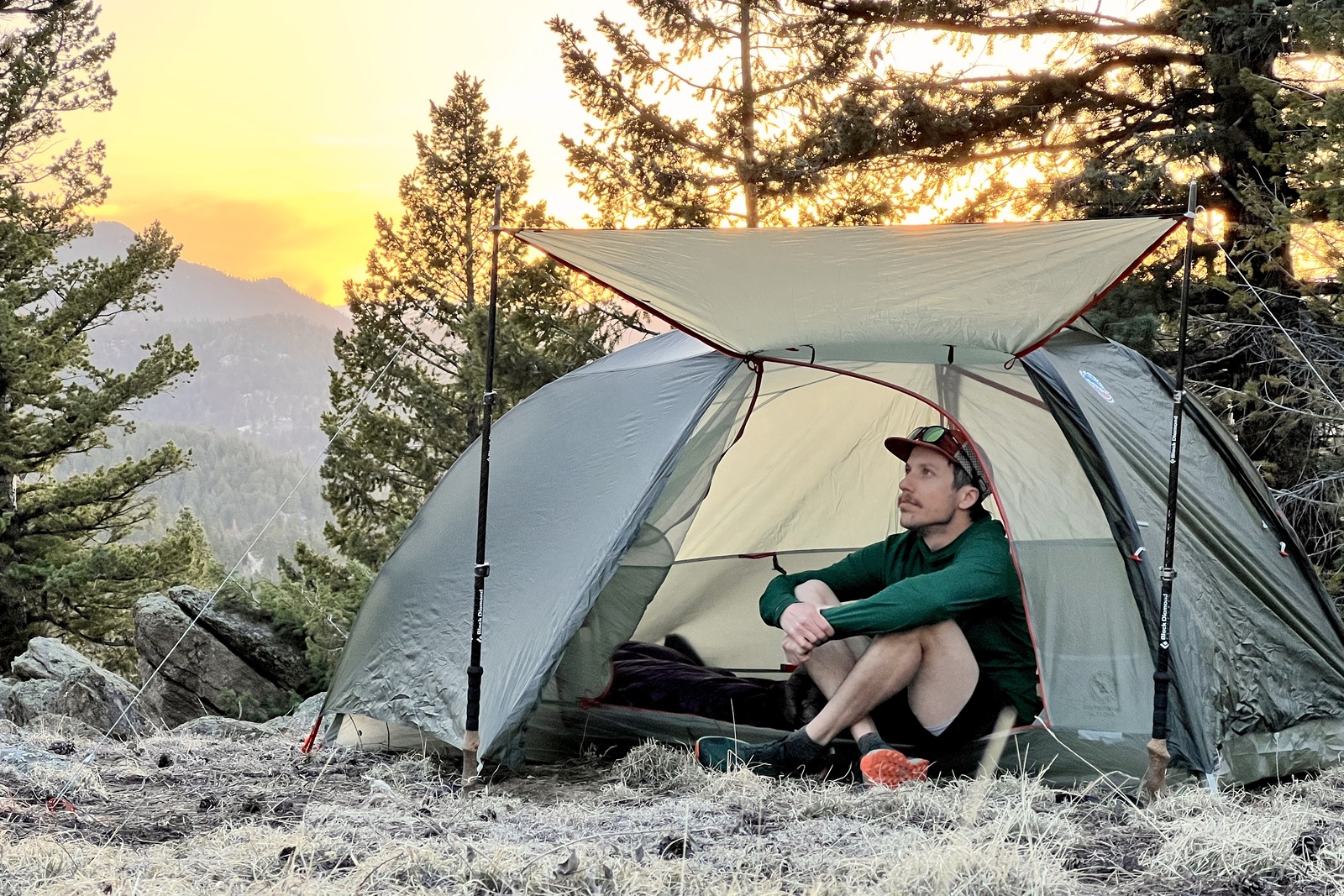
Bottom Line
The Big Agnes Copper Spur UL2 is one of our all-time favorite backpacking tents and a staple on the United States’ long distance hiking trails. The CleverHiker team has carried it for thousands of miles and spent hundreds of nights in the backcountry in it all across the American west. Combining lightweight design with exceptional comfort and weather protection, this tent is livable and easy to love.
This thru-hiker favorite has been trail-tested and constantly improved over the years to perfectly balance all the characteristics of an ideal ultralight tent. It features ample interior space, large vestibules, and even unique features that set it apart from the competition.
The Copper Spur costs a pretty penny, but for folks who want the best, this investment is worthwhile for committed backpackers thanks to its outstanding technical performance, ease of use, and pragmatic features.
How We Tested
As one of our favorite tents, the CleverHiker team has used different iterations of the Copper Spur for thousands of miles backpacking all over the American West. We’ve since re-tested the newest version, comparing it in close detail with previous models.
Quick Specs
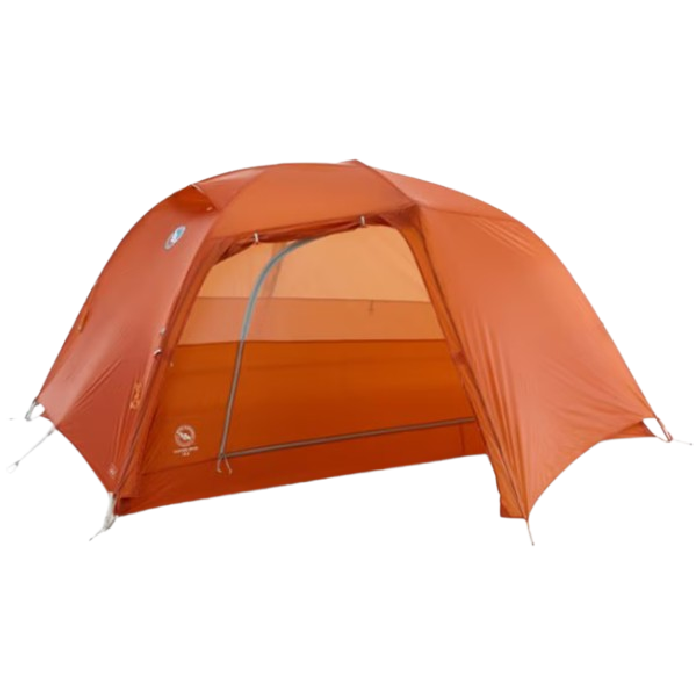
Big Agnes Copper Spur UL2
Best Backpacking Tent Overall
CleverHiker Rating: 4..8/5.0
Price: $550
Packed Weight: 3 lb. 0.01 oz.
Dimensions (LxWxH): 88 x 52/42 x 40 in.
Type: Freestanding
Pros
- Ultralight for a freestanding tent
- Quick and easy to set up
- Ample headroom
- Excellent features
- Quality construction/materials
Cons
- Expensive
- Rainfly zippers can snag
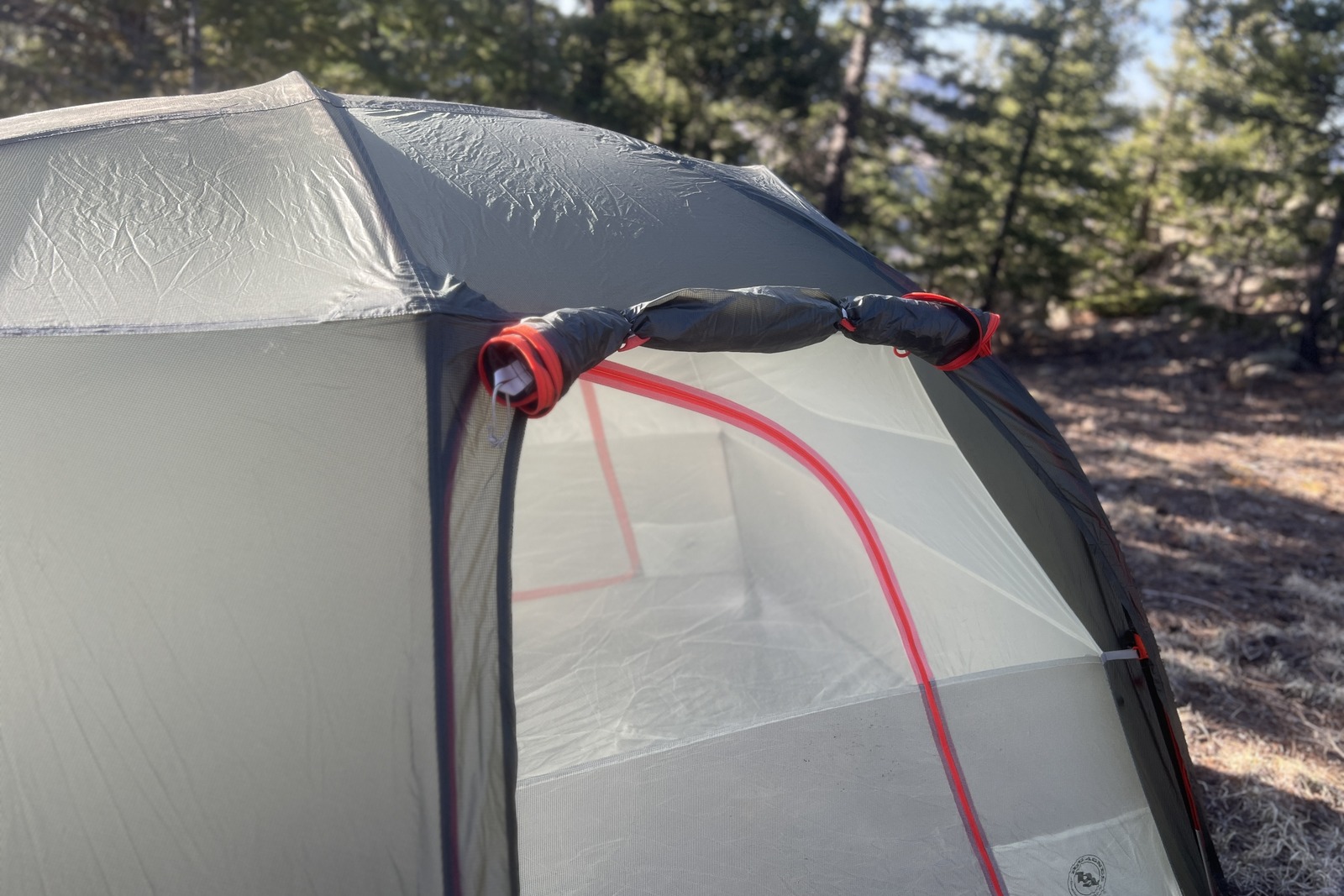
Comfort
With a spacious interior and clever design elements, the Big Agnes Copper Spur UL2 earns some of the highest marks for comfort and livability of any backpacking tent we tested.
It has nearly vertical sidewalls pulled taut by a bent-pole structure and crossbar. It feels enormous inside, with tons of headroom and plenty of space to move around. The asymmetrical shape of the Copper Spur means there’s more room at the head of the tent, so you’ll have plenty of space to sit up and rearrange your gear, and two adults can lie down comfortably side by side without feeling too cramped.
Interior and rainfly doors on each side have double zippers that can be opened with one hand, allowing easy in and out without disturbing your tent partner. It’s easy to keep the interior comfortable and clean thanks to its huge vestibules that easily store bulky, wet, and dirty gear outside the sleeping area.
Plus, the Copper Spur offers some of the best pockets and organization of any tent we’ve tested. It features multiple smaller pockets to keep personal items like headlamps within reach, as well as an enormous gear loft that can easily hold hoodies, compression sacks, and bulky clothing items.
Perhaps the Copper Spur’s coolest feature is its vestibule awning, which provides shelter from the rain without forcing you to cower inside your tent all day long.
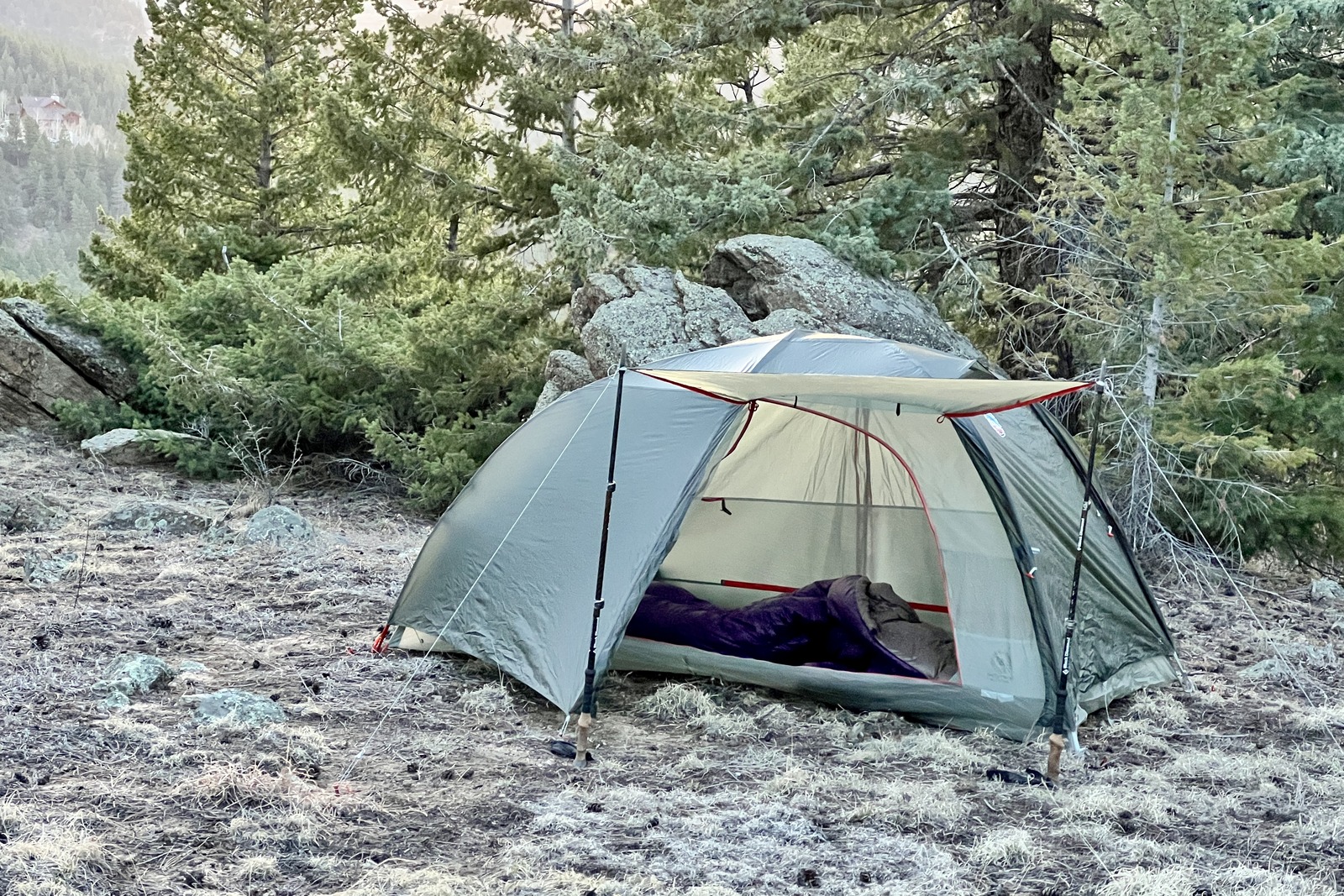
Weight & Packed Size
The Copper Spur minimizes weight without sacrificing key features. Weighing in at just 3 pounds (shedding a few ounces from the previous version), the Copper Spur offers an exceptional balance of weight and livability.
The 20-denier nylon that makes up the tent floor and rainfly, combined with the mostly mesh interior and lightweight poles, stakes, tabs, and zippers, keeps the overall weight way down.
This model is one of our top recommendations because it walks a fine line between lightweight and feature-forward. It’s perfect for ultralight backpackers who want to minimize the bulk and weight of their pack but don’t want to give up the creature comforts of a more traditional tent. To shed even more weight in mild, bug-free environments, the Copper Spur can be pitched just as a fly and footprint with no tent interior.
Big Agnes includes eight relatively thin tent stakes – they’re adequate, but not the most robust, so you’ll likely need to carry additional stakes or sturdier stakes for more challenging conditions, which could increase your overall pack weight.
This year’s version features an updated compression sack with a lengthwise opening—more optimal for rolling the tent up, but less ideal for stuffing.
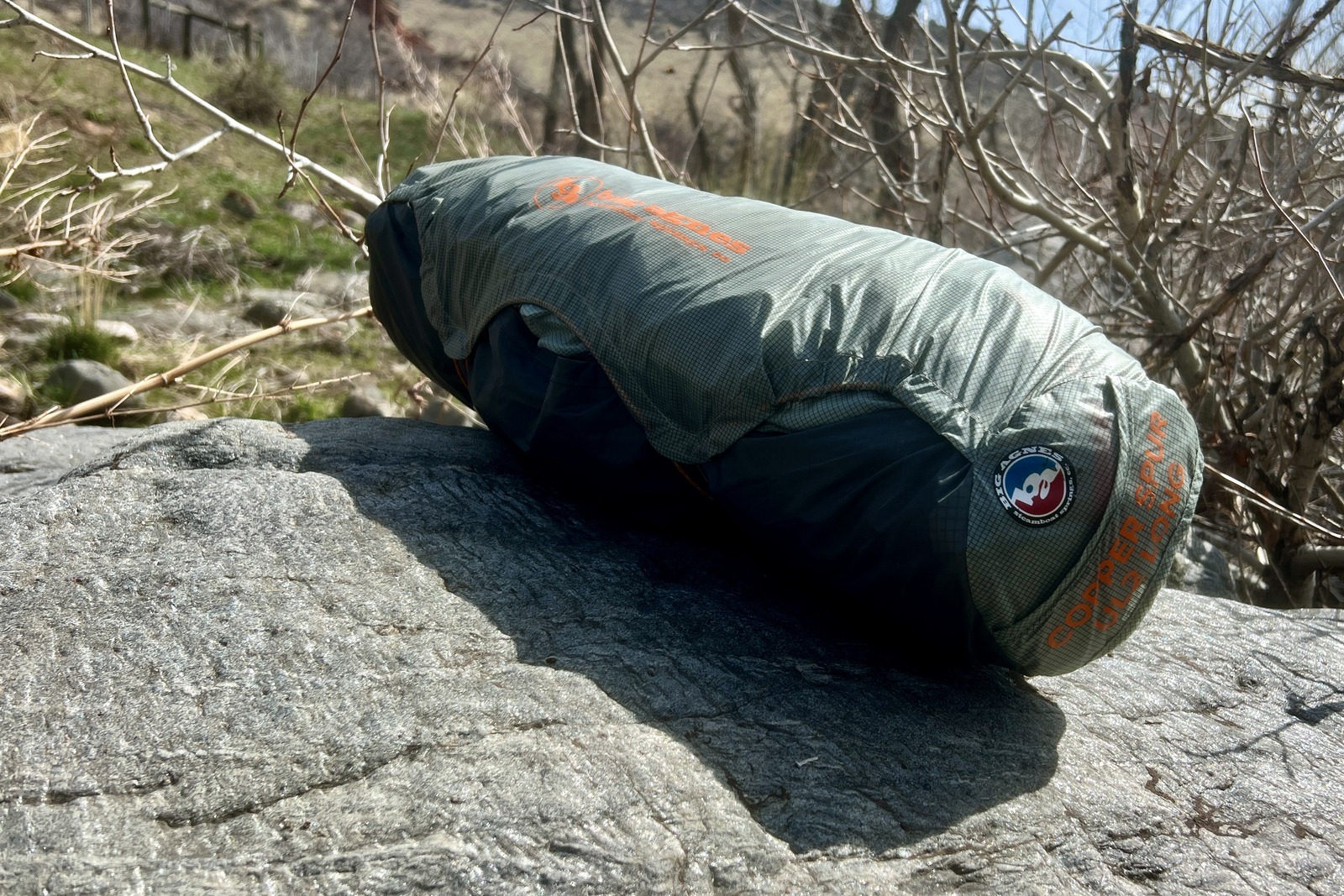
Weather Resistance
Don’t be fooled by this tent’s low weight and thinner materials. Thanks to the Copper Spur, our team has stayed bone dry in some rough backcountry weather, including torrential rain above treeline in the Colorado Rockies, hours-long thunderstorms in the California Sierras, and whipping gusts in the Arizona desert. The tent also features 6 storm guy-out points that, when properly staked, lock the tent to the ground, making it a dependable option in severe weather.
The double-wall construction with a single (but sizeable) vent separates the mesh inner tent from the rainfly, offering solid protection from the elements. This classic design reduces condensation inside and keeps you dry in wet conditions.
The rainfly is made from 20-denier, 1500mm waterproof treated nylon, and the poles’ 4-way hub design lends both flexibility and stability in high winds. We also love the vestibule’s awning pitch mode, which allows you to set up the fly door to create a little ‘porch’ area for cooking in light rain.
That said, the Copper Spur UL2 has some downsides in prolonged extreme weather conditions. The rainfly is lightweight and waterproof, but tends to sag when wet and cold. When temperatures drop below 40°F, it requires occasional tightening to keep full coverage and protection. Consider bringing a few extra stakes if the forecast looks wet to take full advantage of the Copper Spurs guy out points.
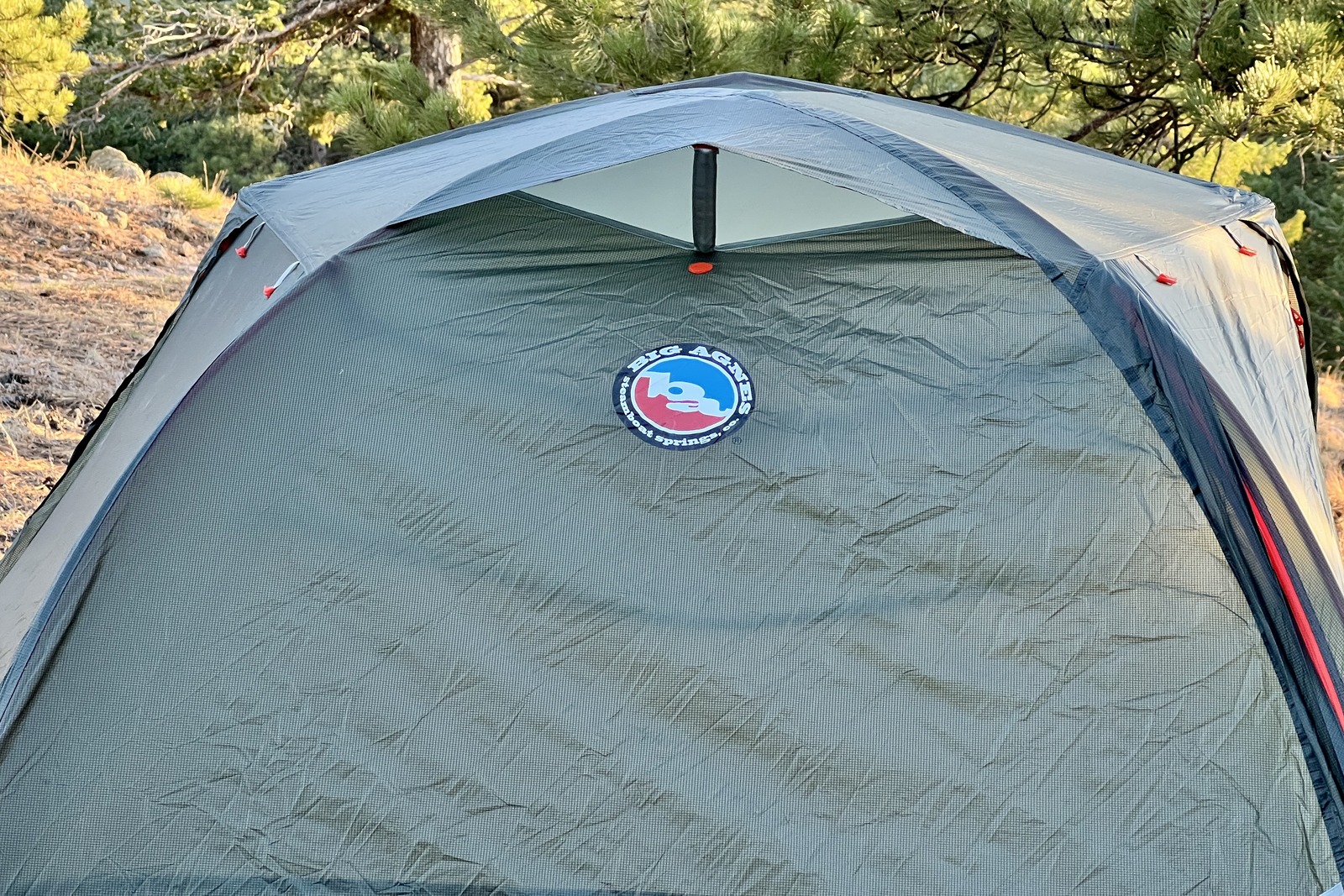
Ease of Setup
The Copper Spur is a great choice for both seasoned backpackers and those new to the trail. The tent’s freestanding design means you can pitch it almost anywhere you can find flat ground, from rocky terrain to soft sand, without technically needing to sink in any stakes for a solid pitch.
Color-coded clips and poles streamline the setup process and make it easy to assemble the tent even in low-light conditions. In our experience, one person can set up the Copper Spur in less than two minutes. We especially love that the pole structure is pre-bent, which maximizes interior space and ensures a taut, stable setup every time without any fuss.
In addition, the tent can be pitched fly first to keep the rest of your gear dry when setting up in the rain. These easy setup features are crucial in bad weather or when you’re dead tired and speed is crucial to staying dry and getting comfortable.
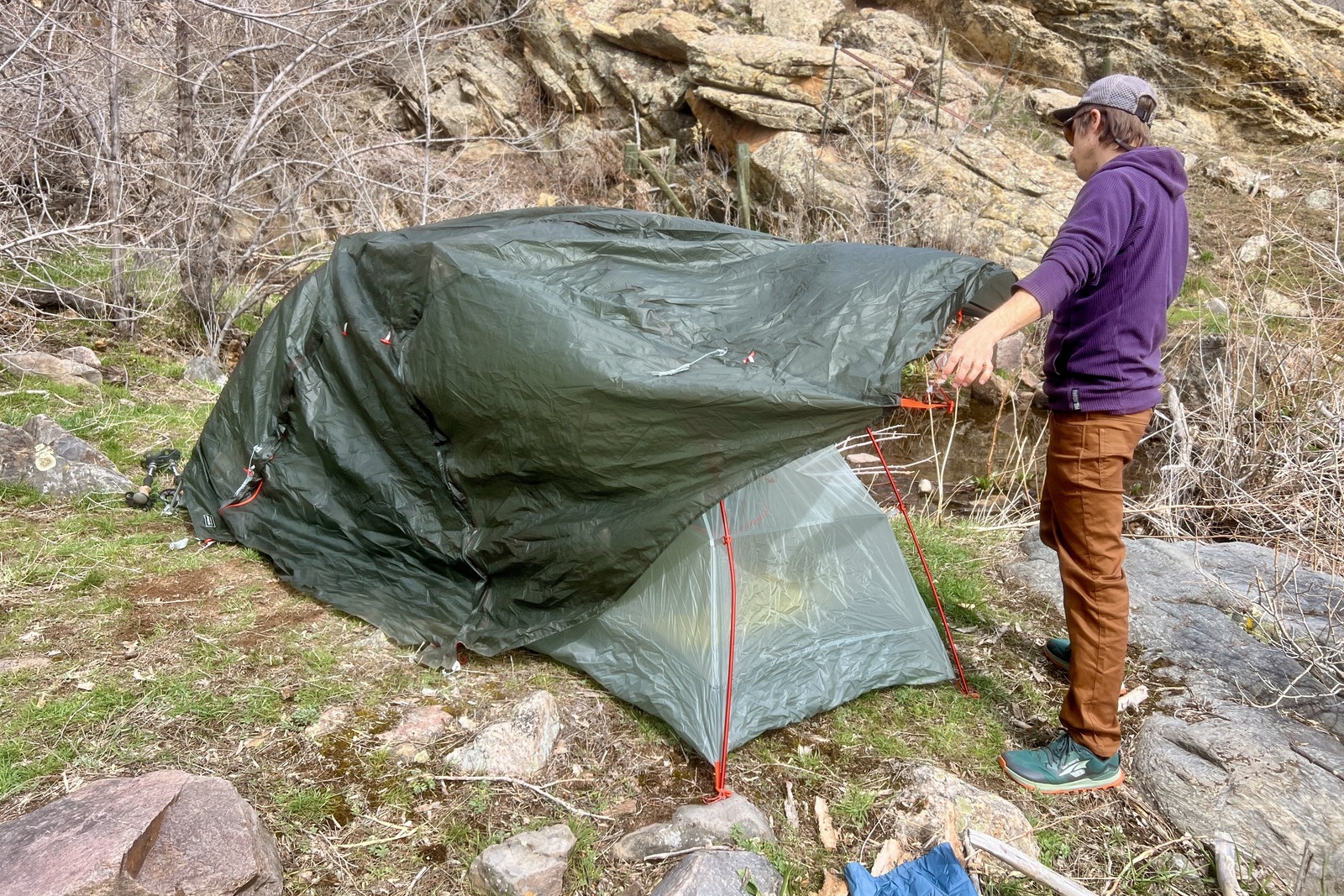
Durability
The Copper Spur strikes a careful balance between lightweight design and long-term resilience, making it a solid choice for most backpackers.
The new Copper Spur features proprietary HyperBead fabric throughout that is lighter, more waterproof, and stronger than its previous construction. In addition, each component is treated with a 1500mm waterproof coating. Its 20-denier ripstop nylon fabric, used for the floor and rainfly, is fairly tough considering its low weight.
The aluminum poles are lightweight but strong and withstand the rigors of repeated use without bending or breaking. We can only say good things about the quality of the tent’s double stitching and seam construction, which result in a tent that lasts for years of regular use. If you choose your campsite carefully, your Copper Spur will last for many seasons.
But like all ultralight gear, the Copper Spur is considerably thinner than heavier-duty tents. You’ll need to be extra cautious to avoid sharp rocks and rough surfaces that could damage the tent floor. If you don’t mind the weight penalty, consider bringing along a footprint or groundsheet. We always recommend bringing along a patch kit in case of tears or punctures. While generally reliable, the lightweight zippers can snag on the tent’s fabric, which can be frustrating, so watch out for that.
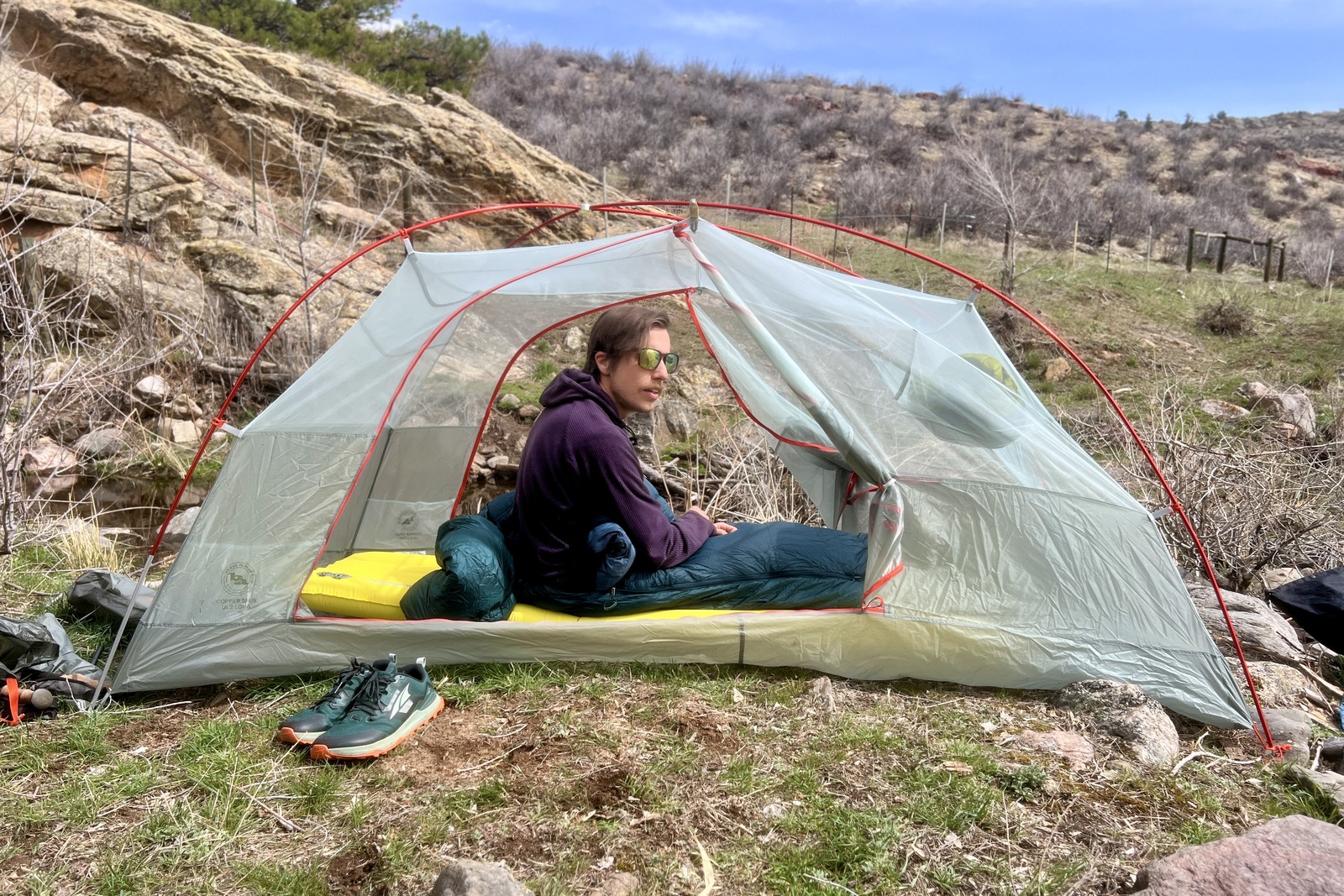
Should You Buy the Big Agnes Copper Spur UL2?
If you’re looking for a tent that offers low weight without sacrificing livability or comfort, the Big Agnes Copper Spur UL2 is a slam dunk.
Folks looking for a backcountry tent that’s easy to set up, durable for regular use, and versatile enough to handle three-season weather conditions will fall in love with the practical features, like tons of pockets and two-zipper doors. Its roomy interior and excellent weather resistance makes the Copper Spur one of the most convenient and efficient camping castles out there, perfect for everyone from veteran thru-hikers to weekend warriors.
There is a reason that this tent has remained a staple on America’s long trails and continues to be a worthwhile investment for dedicated thru-hikers. However, we don’t recommend the Copper Spur if you want a budget-friendly option. The thinner, ultralight materials aren’t cheap and are less suitable for users who are hard on their gear.
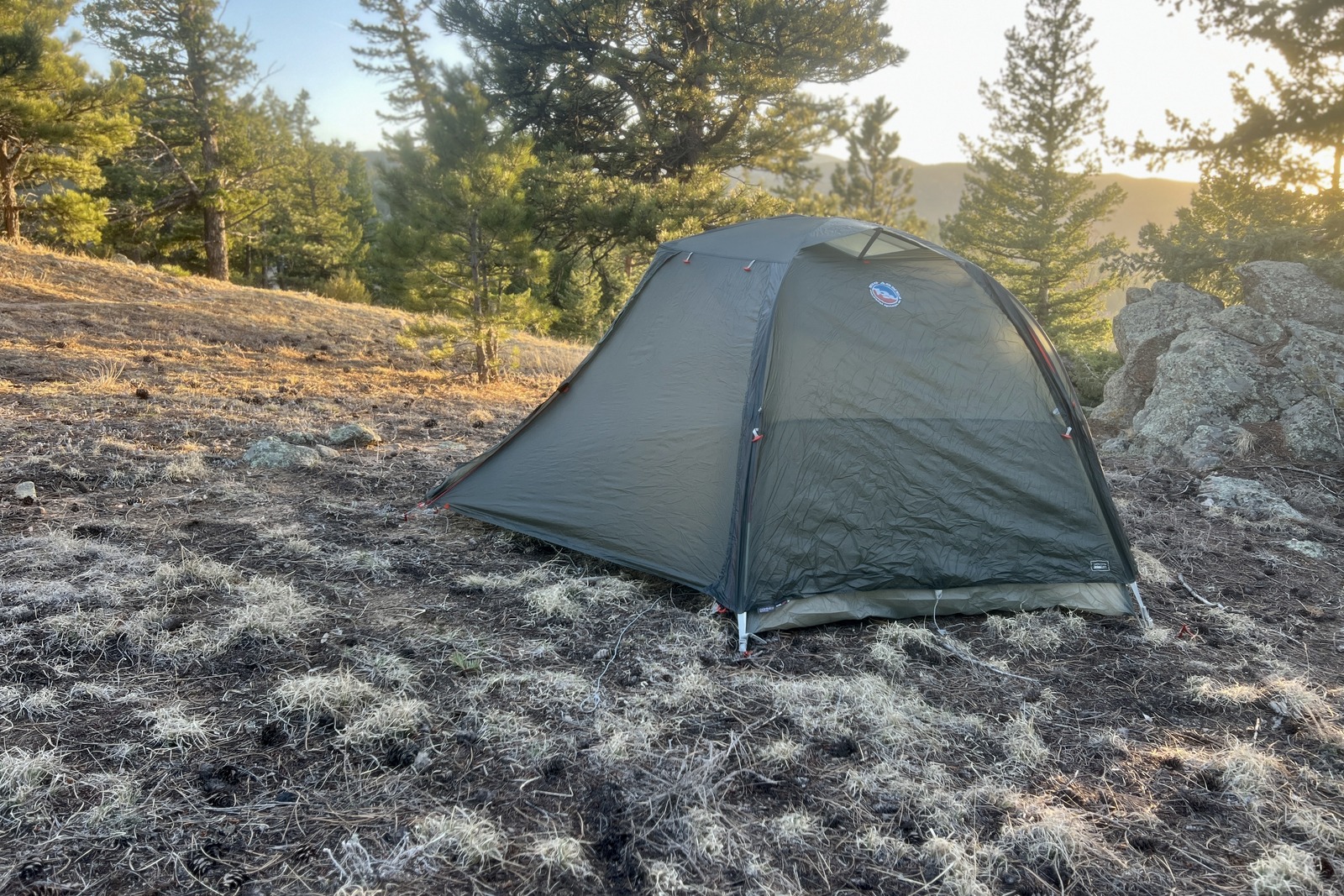
What Other Backpacking Tents Should You Consider?
The Copper Spur UL2 is great, but it’s not the only ultralight tent worth checking out. Don’t sleep on our full list of our favorite backpacking tents to find out which is best for you.
SlingFin Portal 2 Review: The SlingFin Portal 2 offers a similar weight to the Copper Spur and is super easy to set up thanks to a design that caters to minimalist backpackers. However, the Portal 2 is much more weather resistant and durable with its robust pole structure and internal guy lines, perfect for tough weather conditions. The Portal also has a wider ridge pole at the top, which provides more interior headroom and a spacious feel.
Big Agnes Tiger Wall UL2 Tent Review: The Tiger Wall UL2 is a better option if you’re looking for a roomy tent for one person. It’s both lighter and cheaper. The downside is that it’s a semi-freestanding model, so you’ll need to stake down the foot of the tent for structure. It’s also not as durable as the Copper Spur, so you’ll want to treat it with care. Still, for one person, we’ve found these trade offs to be well worth it for the extra weight savings.
MSR Hubba Hubba LT 2 Review: The Hubba Hubba LT 2 is a slightly beefier two-person tent with thicker material, better ventilation, and more interior space. It even has some unique, stand-out comfort features like the Copper Spur although totally different.


